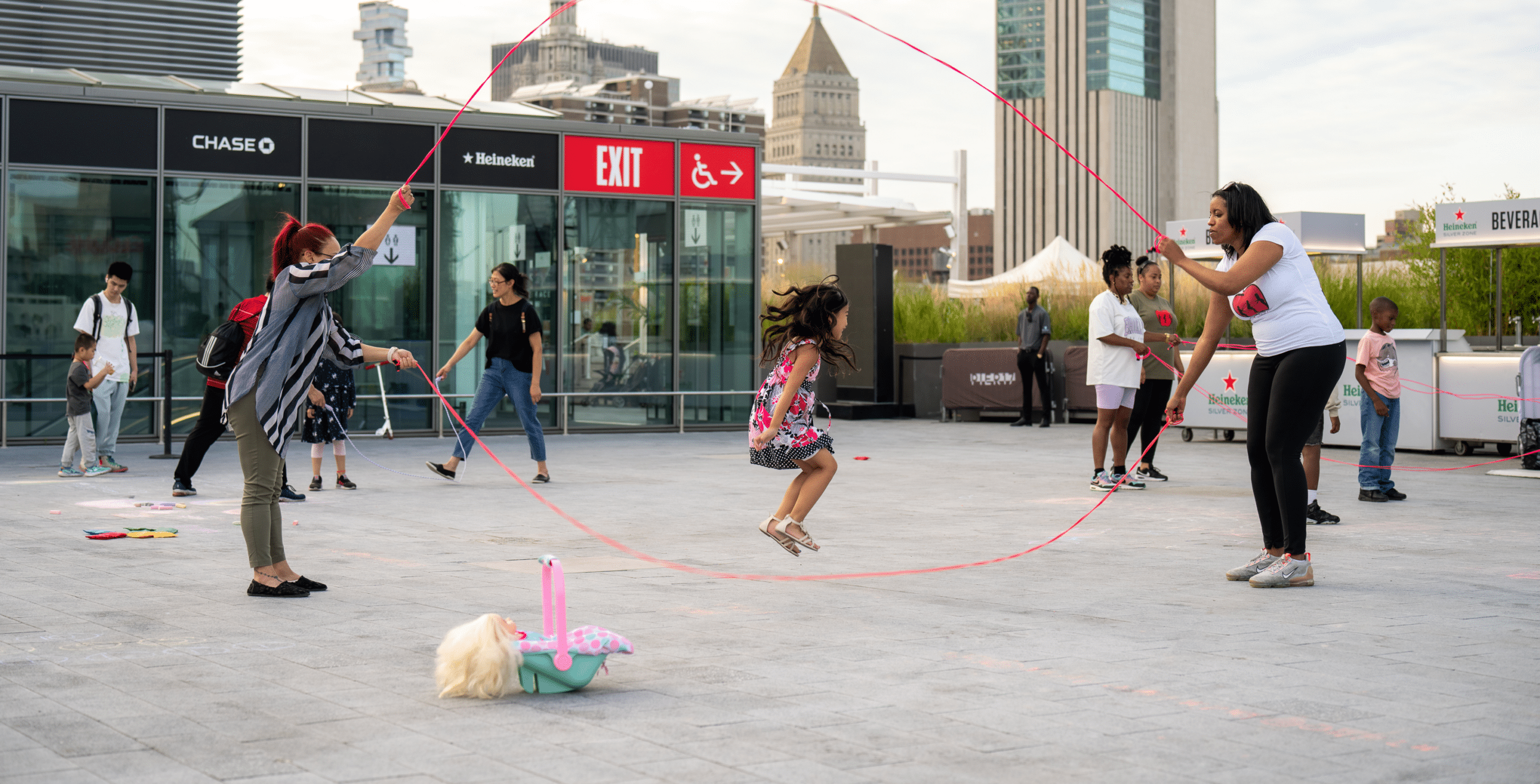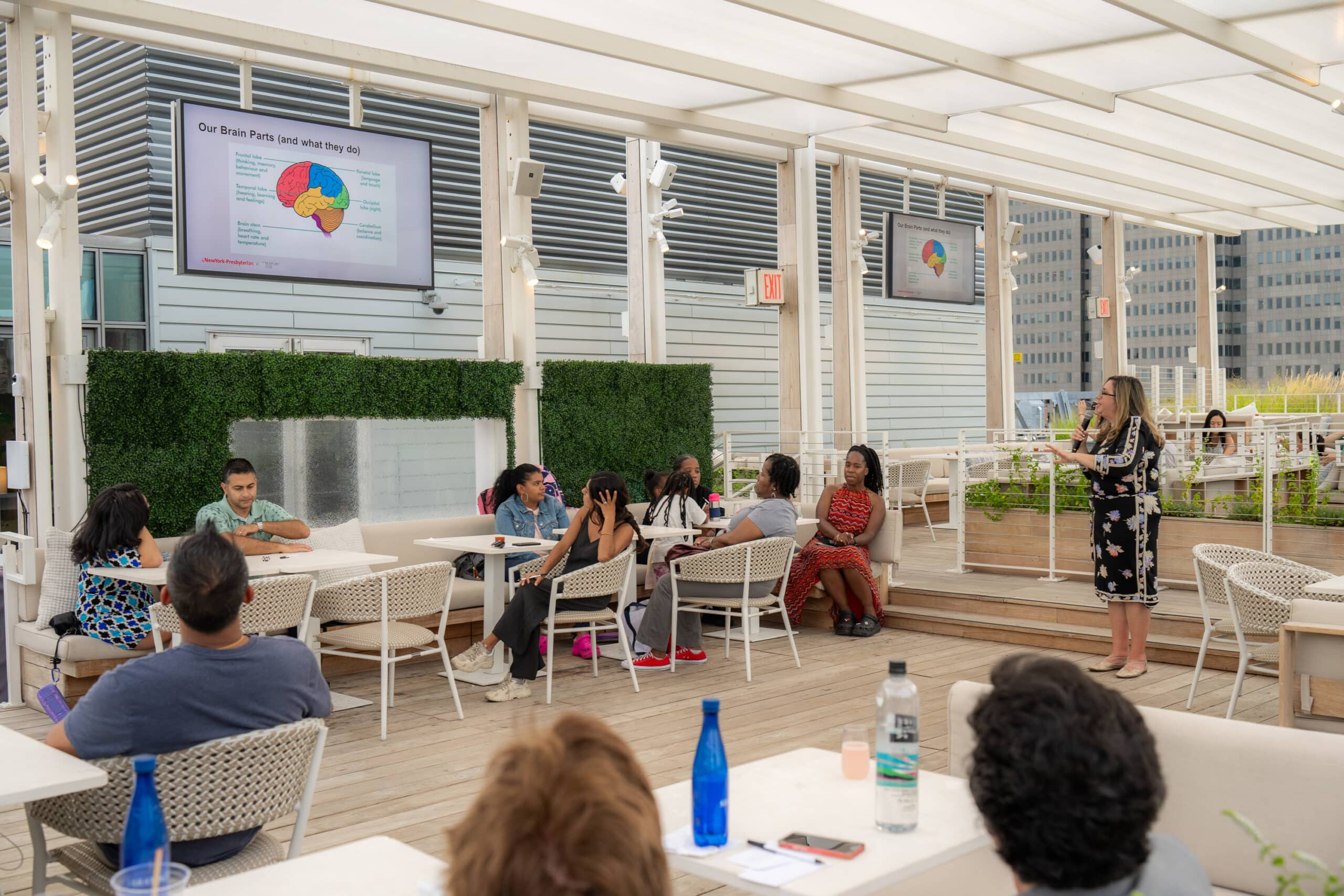
5 Easy Ways to Manage Your Kids’ Screen Time
Meet the Expert

Dr. Heidi A. Bender, Ph.D., is Director of Neuropsychology Services in the Department of Neurological Surgery at NewYork-Presbyterian/Weill Cornell Medicine. She specializes in the evaluation and treatment of patients of all ages with a wide range of neurological and cognitive disorders.
The Advice
Smartphones. Tablets. TV. We’re all spending more and more time glued to our screens, and this goes for kids, too: 60% of parents say their child under 12 has used a smartphone, and kids aged 8–12 average 4–6 hours a day in front of a screen. At a recent Seaport x Mommy Poppins event on The Rooftop at Pier 17, Dr. Heidi A. Bender shared with parents how screen time, when excessive, can have a detrimental effect on children’s development.

Not only can it cause issues with sleep, problem-solving, and emotion regulation, too much screen time often means kids are spending less time reading books, playing outdoors, or spending time with their parents or other children. On top of that, Dr. Bender noted that the U.S. surgeon general recently released an advisory about the harm that social media may pose to youth mental health and how parents can help mitigate it.
There can be lasting neurological impacts as well. “Increased screen time can reduce the integrity of brain structures that support early literacy in pre-kindergarten students,” Dr. Bender explained in an interview on NewYork-Presbyterian’s Health Matters blog. “You can see delays in language acquisition and problems with sustained attention and multitasking.”

Despite the potential negative impacts, Dr. Bender says there are healthy ways to manage screen time and use technology. Here are some of the top tips she shared with our Seaport families:
Keep meals and bedtime as tech-free zones: Keep dinnertime for family conversations, and stop using devices at least two hours before bedtime to reduce the effects blue light can have on sleep.
Set physical boundaries: Working on screens and play activities shouldn’t take place in the same spaces.
Create a clear on/off schedule: Set expectations so everyone knows when it’s okay to use devices or social media, and when it’s time to put the screens away. This goes for parents, too!
Use tech together: Technology can be used for healthy family bonding. Play an online game with your kids, cook recipes you find on YouTube, or learn a new language with the help of an app. You could even learn some new steps for a family dance video to post on TikTok.

Carve out time for non-tech fun: Give your kids the chance to engage in stimulating activities offline, such as playing games with friends and neighbors or attending community events like those at the Seaport. Bonus points if you get your kids moving through physical activities like double Dutch, hopscotch, or scavenger hunts. Drawing, arts and crafts, and reading are also good alternatives to screens.
To learn more about how screen time impacts the brain, check out this Health Matters podcast episode featuring Dr. Bender. For more health and wellness insights from the team at NewYork-Presbyterian, bookmark healthmatters.nyp.org.
